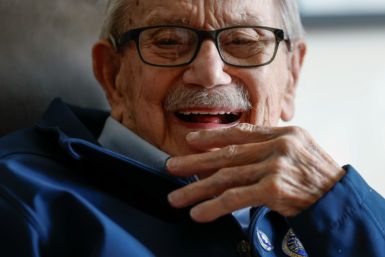Scotland Witnessing A Surge In Pro-Independence Sentiments: Salmond Does Not Rule Out A Future Break Away From The UK

The debate on Scottish independence is getting a revival. This is despite the referendum held in September that voiced a clear "No" to independence.
It has reached such a level that a claim has been made that "the prospect of Scotland breaking away from the United Kingdom in the next 10 to 20 years is looking quite bright." This was stated by Alex Salmond, the outgoing leader of Scotland Nationalist Party, who spearheaded the aborted independence campaign. Salmond told BBC TV that Scotland is now brimming with the desire for change and that is palpable even among those who voted against independence, reported Yahoo News.
Yes Voters Rising
Salmond was sounding optimistic despite the negative vote in the referendum. The reason for his cheer was a new opinion poll that showed a mood swing among voters with a majority backing Scottish independence, if they are to vote in one more referendum. In the referendum held in September, 55 percent of Scots voted to reject independence. One reason for the outcome was the result of Britain's mainstream parties wooing the Scots with promises of greater devolution of powers to stop the breakup.
The latest opinion poll held on Saturday has indicated 52 percent of the respondents are fine with breaking away from Britain. According to a report by Reuters, a majority of Scots wanted to vote for independence in another referendum.
The YouGov poll for the Times newspaper showed a 4 percent rise in favour of independence. In September's referendum, 55 percent of Scots voted against independence. The rise in freedom fervour seems to be the result of a distrust over the promises of Westminister politicians made on devolution and also on concerns that non-English lawmakers may be voting on matters concerning England in the British parliament. The SNP has already accused other parties of reneging on the promises made.
SNP Rebounding
Clearly the SNP is in "never say die" mood and is bouncing back. In contrast, the Labour party that was against independence, seems to be losing its traditional strongholds of Scotland, raising doubts about the party's capability to unseat Prime Minister David Cameron's Conservative Party in the 2015 May national election. It will be a closely fought poll. Neither the the Conservatives of Cameron nor the Labour party are confident of winning a majority of their own and will be needing the support from other parties. The SNP will be in reckoning for all of them.
The successor to Salmond in the SNP will be Nicola Sturgeon. She also expressed her distrust about the promises on greater Scottish devolution and points to the desire for change among Scots as reasons for fuelling the desiore for full-fledged independence. Sturgeon hinted that her party might demand another independence referendum in 2017 when Britain's Euro-sceptic parties like UKIP and others will be pushing for a referendum to decide on Britain's exit from the European Union. Unlike many Londoner's, most of the Scots are in favour of remaining in the EU. Scots see Britain's referendum will be the opportune time to make a similar demand from their side.






